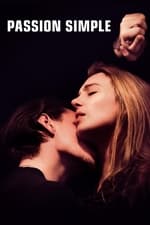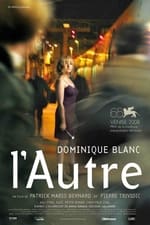Personlig info
Kendt for Skrivning
Known Credits 7
Køn Kvinde
Fødselsdato 1 september 1940 (83 years old)
Fødested Lillebonne, Seine-Maritime, France
Også kendt som
- Annie Duchesne
Indholds Score
100
Ja. Ser godt ud!
Log ind for at rapportere en fejl
Biografi
Annie Thérèse Blanche Ernaux (née Duchesne; born 1 September 1940) is a French writer who was awarded the 2022 Nobel Prize in Literature "for the courage and clinical acuity with which she uncovers the roots, estrangements and collective restraints of personal memory". Her literary work, mostly autobiographical, maintains close links with sociology.
Ernaux was born in Lillebonne in Normandy, France, and grew up in nearby Yvetot, where her parents, Blanche (Dumenil) and Alphonse Duchesne, ran a café and grocery in a working-class part of town. In 1960, she travelled to London, where she worked as an au pair, an experience she would later relate in 2016's Mémoire de fille (A Girl's Story). Upon returning to France, she studied at the universities of Rouen and then Bordeaux, qualified as a schoolteacher, and earned a higher degree in modern literature in 1971. She worked for a time on a thesis project, unfinished, on Pierre de Marivaux.
In the early 1970s, Ernaux taught at a lycée in Bonneville, Haute-Savoie, at the college of Évire in Annecy-le-Vieux, then in Pontoise, before joining the National Centre for Distance Education, where she was employed for 23 years.
Ernaux started her literary career in 1974 with Les Armoires vides (Cleaned Out), an autobiographical novel. In 1984, she won the Renaudot Prize for another of her works La Place (A Man's Place), an autobiographical narrative focusing on her relationship with her father and her experiences growing up in a small town in France, and her subsequent process of moving into adulthood and away from her parents' place of origin.
Early in her career, Ernaux turned from fiction to focus on autobiography. Her work combines historic and individual experiences. She charts her parents' social progression (La place, La honte), her teenage years (Ce qu'ils disent ou rien), her marriage (La femme gelée), her passionate affair with an Eastern European man (Passion simple), her abortion (L'événement), Alzheimer's disease (Je ne suis pas sortie de ma nuit), the death of her mother (Une femme), and breast cancer (L'usage de la photo). Ernaux also wrote L'écriture comme un couteau (Writing as Sharp as a Knife) with Frédéric-Yves Jeannet.
A Woman's Story, A Man's Place, and Simple Passion were recognised as The New York Times Notable Books, and A Woman's Story was a finalist for the Los Angeles Times Book Prize. Shame was named a Publishers Weekly Best Book of 1998, I Remain in Darkness a Top Memoir of 1999 by The Washington Post, and The Possession was listed as a Top Ten Book of 2008 by More magazine. ...
Source: Article "Annie Ernaux" from Wikipedia in English, licensed under CC-BY-SA 3.0.
Annie Thérèse Blanche Ernaux (née Duchesne; born 1 September 1940) is a French writer who was awarded the 2022 Nobel Prize in Literature "for the courage and clinical acuity with which she uncovers the roots, estrangements and collective restraints of personal memory". Her literary work, mostly autobiographical, maintains close links with sociology.
Ernaux was born in Lillebonne in Normandy, France, and grew up in nearby Yvetot, where her parents, Blanche (Dumenil) and Alphonse Duchesne, ran a café and grocery in a working-class part of town. In 1960, she travelled to London, where she worked as an au pair, an experience she would later relate in 2016's Mémoire de fille (A Girl's Story). Upon returning to France, she studied at the universities of Rouen and then Bordeaux, qualified as a schoolteacher, and earned a higher degree in modern literature in 1971. She worked for a time on a thesis project, unfinished, on Pierre de Marivaux.
In the early 1970s, Ernaux taught at a lycée in Bonneville, Haute-Savoie, at the college of Évire in Annecy-le-Vieux, then in Pontoise, before joining the National Centre for Distance Education, where she was employed for 23 years.
Ernaux started her literary career in 1974 with Les Armoires vides (Cleaned Out), an autobiographical novel. In 1984, she won the Renaudot Prize for another of her works La Place (A Man's Place), an autobiographical narrative focusing on her relationship with her father and her experiences growing up in a small town in France, and her subsequent process of moving into adulthood and away from her parents' place of origin.
Early in her career, Ernaux turned from fiction to focus on autobiography. Her work combines historic and individual experiences. She charts her parents' social progression (La place, La honte), her teenage years (Ce qu'ils disent ou rien), her marriage (La femme gelée), her passionate affair with an Eastern European man (Passion simple), her abortion (L'événement), Alzheimer's disease (Je ne suis pas sortie de ma nuit), the death of her mother (Une femme), and breast cancer (L'usage de la photo). Ernaux also wrote L'écriture comme un couteau (Writing as Sharp as a Knife) with Frédéric-Yves Jeannet.
A Woman's Story, A Man's Place, and Simple Passion were recognised as The New York Times Notable Books, and A Woman's Story was a finalist for the Los Angeles Times Book Prize. Shame was named a Publishers Weekly Best Book of 1998, I Remain in Darkness a Top Memoir of 1999 by The Washington Post, and The Possession was listed as a Top Ten Book of 2008 by More magazine. ...
Source: Article "Annie Ernaux" from Wikipedia in English, licensed under CC-BY-SA 3.0.
Skrivning
|
||||||
|
||||||
|
||||||
|
Skuespil
|
|||
|
|||
|
|||
|
Instruering
|





